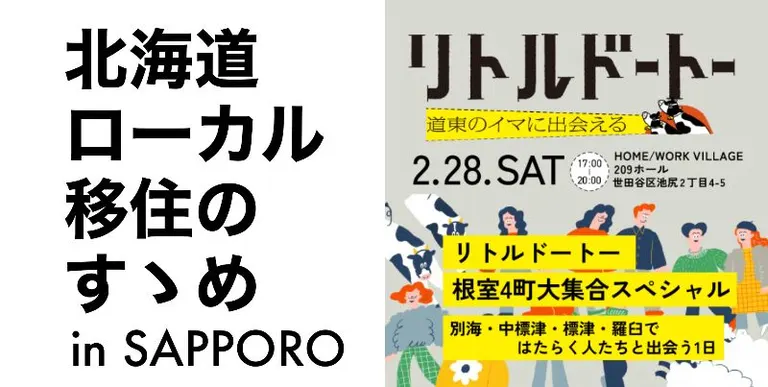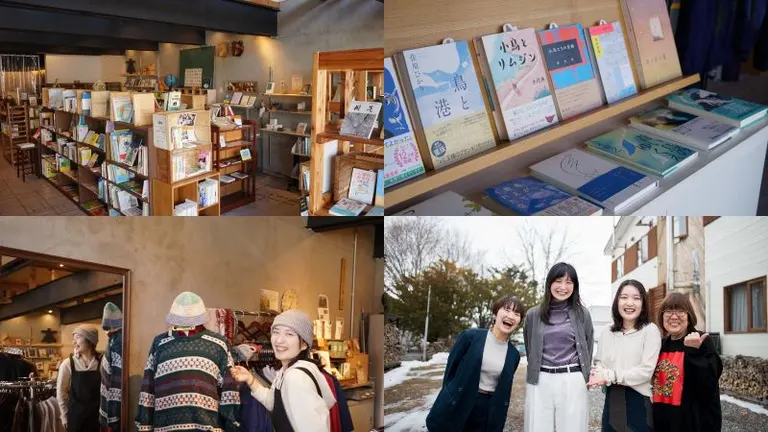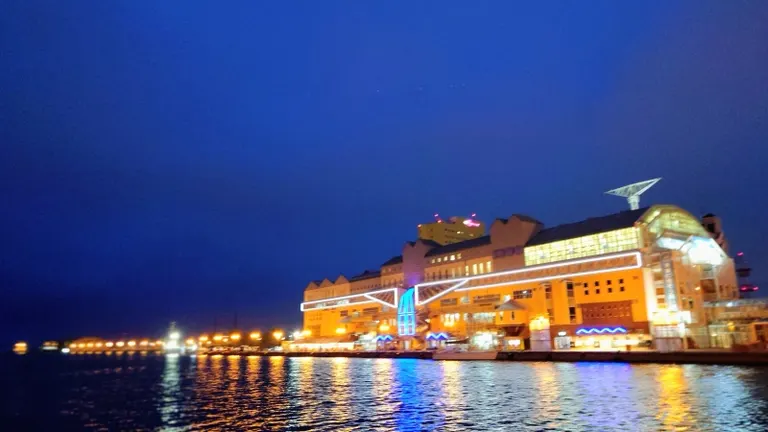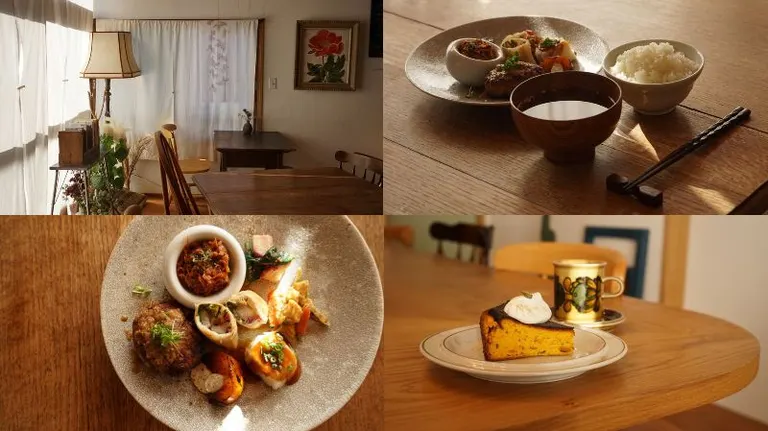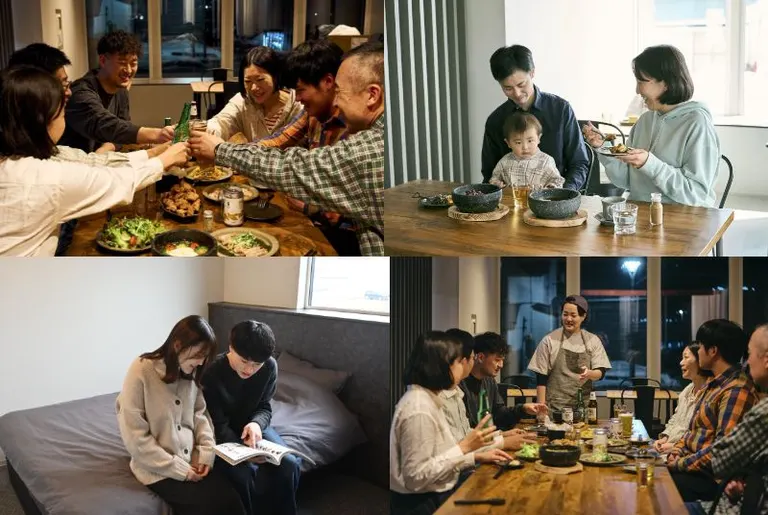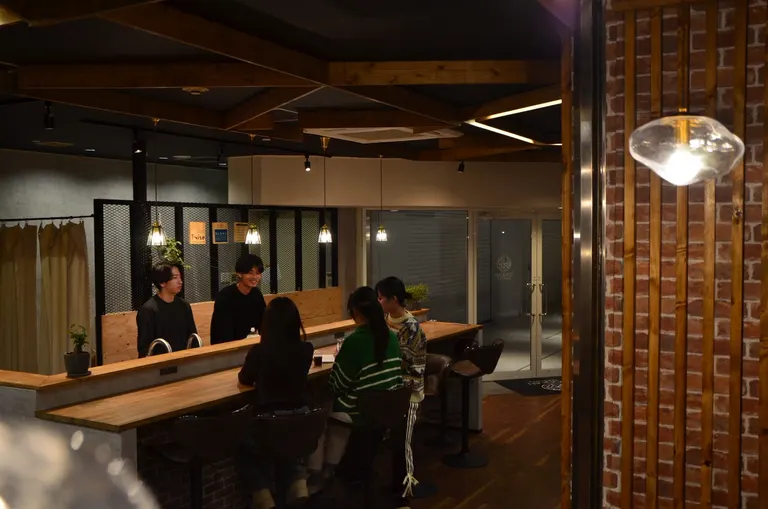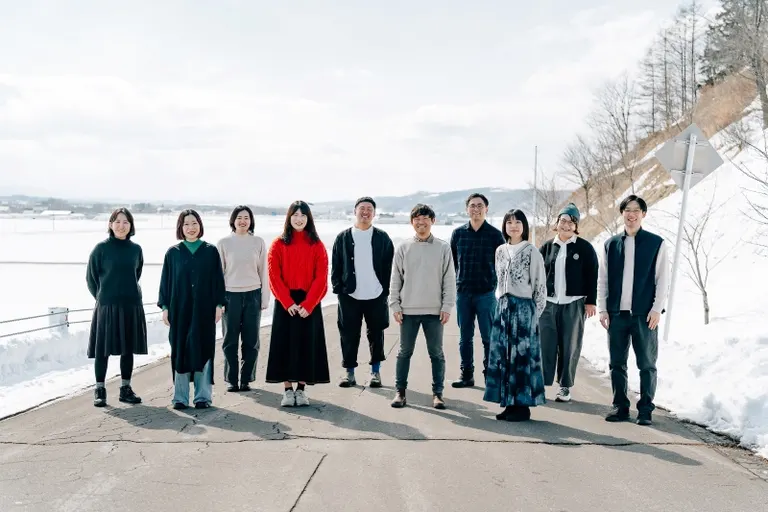
ARTICLES
We want to be conscious of the blessings from our region. The 'Local Secretariat' role that Dot Dōtō arrived at upon its 5th anniversary.
Passing .doto on to the Next Generation
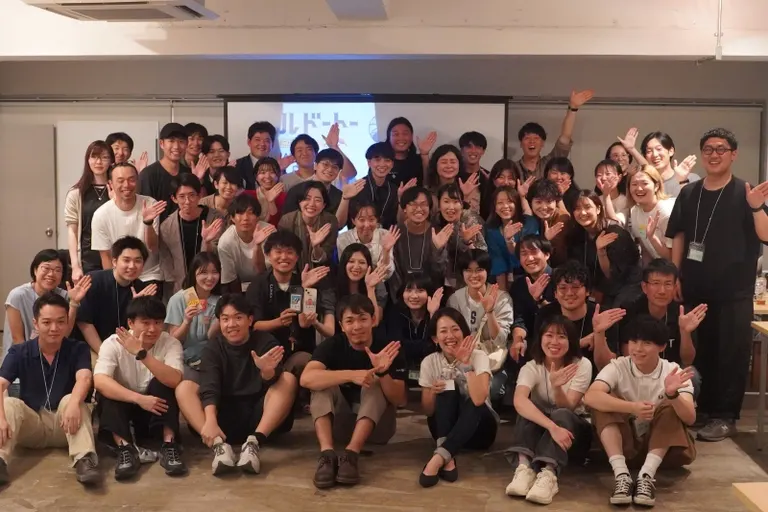
'Little Doto,' a social event held in places like Tokyo and Osaka
――Finally, could you share your vision for the future?
Nozawa: While we have the grand vision of "making Doto a place where ideals can be realized," I also feel that if we don't handle what's right in front of us, we could lose our footing. If things were going as smoothly as we'd like, we should have more members by now, so I want to create an environment that makes people want to work with us. I really want to get more and more people involved.
Personally, I moved from Obihiro City to Memuro Town. In meeting people across Doto who are putting down roots and building their lives in their communities, I realized I wasn't living that way in the big city of Obihiro. People come to .doto for advice after they've nurtured relationships with their communities, faced various challenges, and secured budgets. I didn't want to be the guy who just skims the cream off the top without having gone through those struggles myself. To avoid that, I needed to have similar experiences. So, I moved to a small town to engage with the local people and go through the experience of budgeting for new projects myself.
Nakanishi: My long-standing goal is to change the situation where people think, "I can't realize my ideals in Doto because it's the countryside" or "because there are no people." I call the human connections and regional brand that .doto has built "Doto capital." These intangible assets have accumulated, and the term 'Doto,' which was once just a geographical division, has become a subject that the people of the region can use. It feels like we've all enriched the satoyama together.
I hope that people will use these resources to pursue their own self-realization and that new businesses will be born. Increasing the number of people involved should also increase the number of people who can benefit, so I want to make .doto even more open and get closer to our vision of "making Doto a place where ideals can be realized."
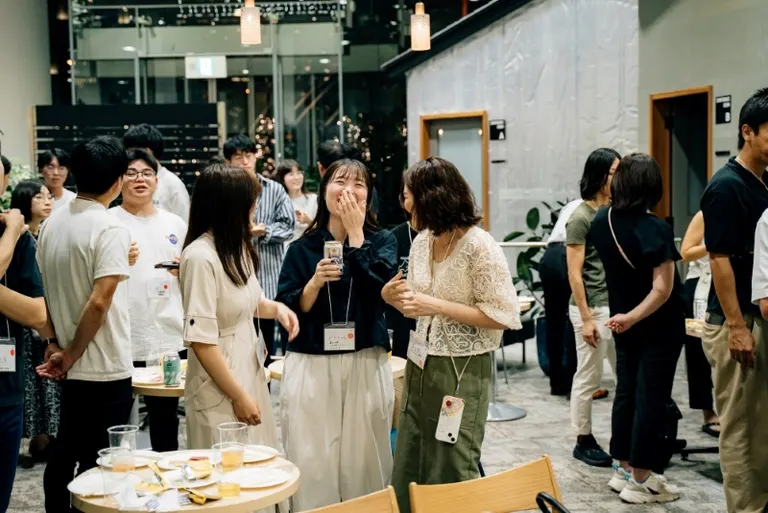
A scene from 'Little Doto'
Nakanishi: Recently, I've been doing work related to business succession for small and medium-sized enterprises and within families, and doing that makes me think, "Life is short." I'm 36 now. One more round of that and I'll be 72. I'll have more experience and knowledge, but my most active years will be behind me, and there will be more things I can't do. When I think about it that way, the time I have left feels short.
So, I've come to feel the importance of passing on what we're doing to the next generation. To do that, we have to make our activities something they'll want to inherit. It's important that it doesn't just end when we can no longer be active, but that it continues afterward. I want to create a cycle for that.
――Are you thinking about having someone succeed you at .doto as well?
Nakanishi: I'm very conscious of that. As our own life stages change, there will be things we can and cannot be involved in, right? A generation gap might emerge. To move toward the vision of "making Doto a place where ideals can be realized," I think it will work better if younger people take charge of the business. Without that kind of metabolism, we'll become unable to make appropriate choices and responses.
To function as a secretariat, you need a fresh perspective, so I want someone to inherit .doto. To make the younger generation want to take over, we need to enrich both the content of the work and the income side. So, my big personal theme is to keep working hard ourselves while also making it an open place.
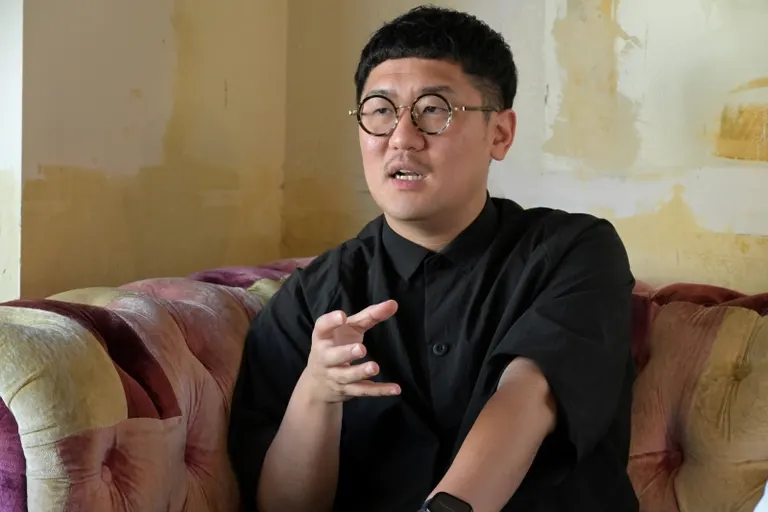
――Mr. Nakanishi, you seem to be the type of person who internalizes the challenges you face, like population decline or business succession.
Nakanishi: With regional issues, everyone is supposed to be a stakeholder, but I often feel that people are indifferent. If everyone got involved, even just a little, things would change dramatically. For example, if every person in Doto gave 100 yen, we'd collect nearly 100 million yen. If we collected that every month, it would be 1.2 billion yen in a year. Since we're able to do this much with just nine people, if everyone paid 100 yen a month, a simple calculation shows our business and impact would be nearly 20 times greater. I'm certain the region would change.
Nozawa: With that much, we could really do so many things.
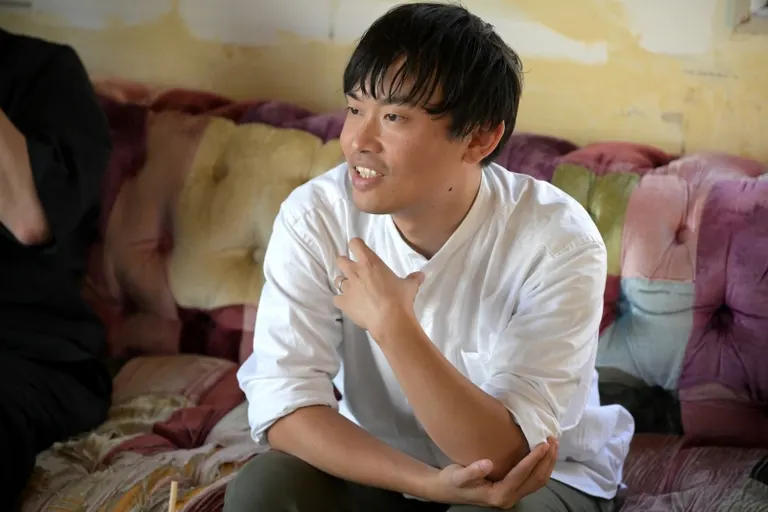
Nakanishi: Even if we don't get that far, our challenge with "DOTO-NET" is to get closer to that number, whether it's two times or ten times the impact.
There are things that absolutely should be done, but no one does them because they're a hassle. We're aware that we're doing those "I wish someone would do it" things. We don't want people who take action to be at a disadvantage. Instead, we want everyone to become a stakeholder in the things that should be done. That's the kind of future for Doto we want to create.
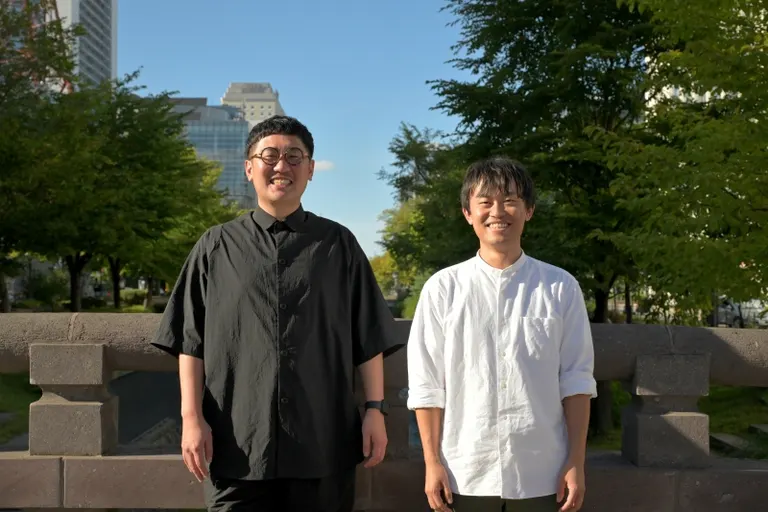
Writer's Profile
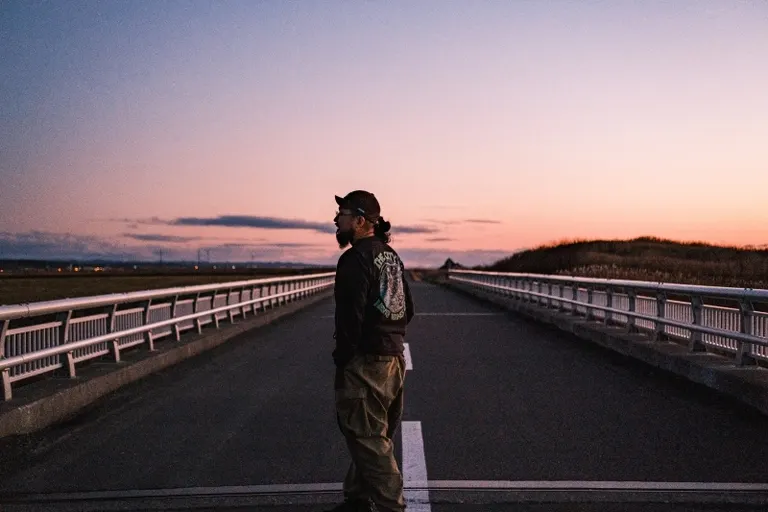 Editor-in-Chief of "IN&OUT -Hakodate and People-"
Kohei Abe
Editor-in-Chief of "IN&OUT -Hakodate and People-"
Kohei Abe
Born in Hakodate, Hokkaido. After graduating from university, he embarked on a journey around the world, visiting all five continents. Upon his return to Japan, he began his career as a freelance writer for travel magazines and other publications. He currently covers and writes articles for magazines and web media across a wide range of genres, including travel, music, and corporate PR. While raising his child in Tokyo, he began to consider relocating, which led him to co-found the local media outlet "IN&OUT –Hakodate and People-" with his partners. He made the move back to Hakodate in March 2021 and launched the magazine "Seikatsuken."






